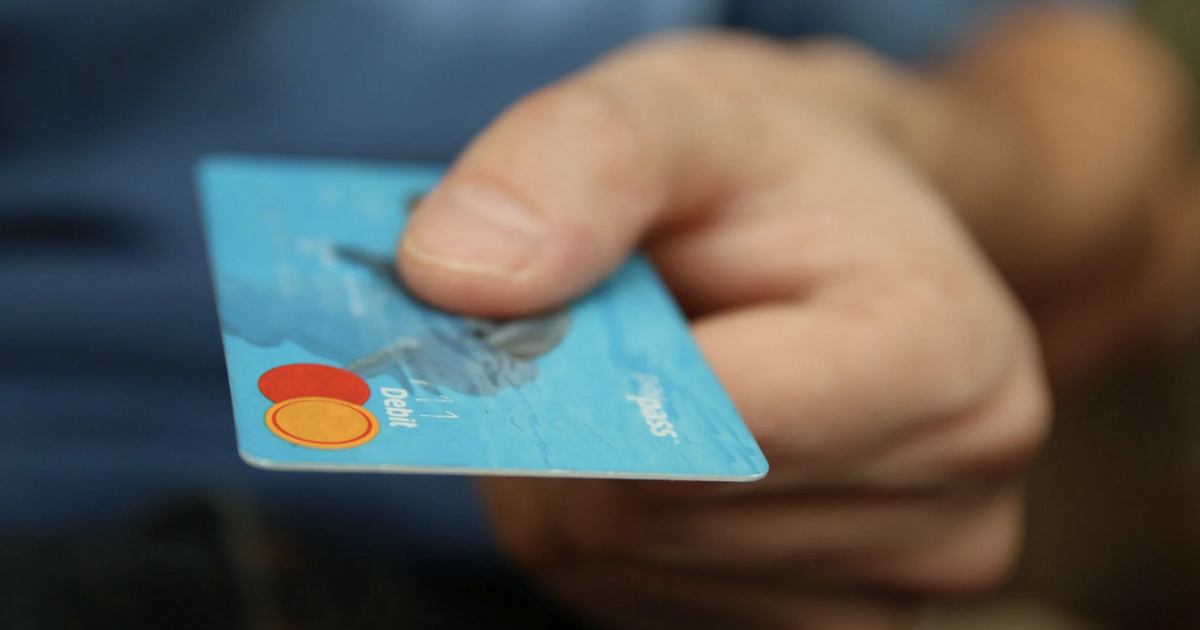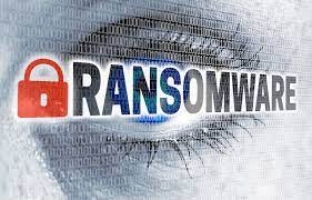Press Release
After discontinuing support for ransom payments, insurer AXA was attacked by ransomware.

A ransomware cyber assault has targeted the Thai, Malaysian, Hong Kong, and Philippine branches of the world’s largest insurance company, AXA.
The Avaddon ransomware organisation claimed yesterday, as reported by BleepingComputer, that it had stolen 3 TB of private data from AXA’s Asian operations.
Additionally, AXA’s international websites were down yesterday for a while due to a Distributed Denial of Service (DDoS) attack, according to BleepingComputer.
The group claims that the compromised data collected by Avaddon includes copies of ID cards, bank account statements, claim forms, payment records, contracts, claim forms for customers that reveal their sexual health diagnosis, and more.
The group’s statement follows AXA’s revelation that it would no longer cover ransomware extortion payments when underwriting cyber-insurance plans in France.
Asian AXA offices are targeted by a ransomware organisation.
The ransomware organisation Avaddon took responsibility for the attack on AXA’s offices in Asia yesterday.
The group also asserted that there was a DDoS attack ongoing against AXA’s websites hosted in Thailand, Malaysia, Hong Kong, and the Philippines:
The Avaddon ransomware gang initially made the threat to launch DDoS assaults to take down victims’ websites or networks until they get in touch and start negotiating to pay the ransom in February 2021.
When ransomware gangs started deploying DDoS assaults against their victims as an extra point of leverage in October 2020, BleepingComputer became the first publication to report on this new development.
About a week after AXA announced that payment for ransomware extortion settlements would no longer be included in their cyber-insurance policies sold in France, Avaddon announced the attack on AXA’s infrastructure.
Avaddon started dumping part of the stolen data on their leak site yesterday, as seen by BleepingComputer, even if the exact date of the incident remains unknown.
Avaddon also threatened to expose AXA’s priceless records if the insurance firm didn’t get in touch with them and work with them within 10 days.
The gang asserts to have obtained 3 TB of AXA data, which includes:
client medical records (including those containing sexual health diagnosis)
customer claims payments to consumers’ bank accounts scanned records content only available to hospitals and physicians (private fraud investigations, agreements, denied reimbursements, contracts)
Identity cards, passports, and other forms of identification
AXA: Access to data by a Thai partner only, “No Evidence”
AXA responded when approached by BleepingComputer as follows:
A recent targeted ransomware assault on Asia Assistance affected its IT operations in Thailand, Malaysia, Hong Kong, and the Philippines.
As a result, someone was able to access some data handled by Inter Partners Assistance (IPA) in Thailand.
“At this time, there is no proof that any additional data was accessed in Thailand beyond IPA.”
“The incident is being investigated by a dedicated taskforce that includes outside forensic experts. Partners in business and regulators have been informed.”
According to an AXA spokesman, “AXA takes data privacy very seriously and will take the appropriate procedures to notify and help all corporate clients and people impacted” if IPA’s investigations reveal that sensitive data of any persons have been affected.
The incident’s timing is interesting in light of this week’s FBI and Australian Cyber Security Centre (ACSC) alerts on ongoing Avaddon ransomware assaults aimed at enterprises from a wide range of industries in the US and around the world.
Attackers who use ransomware on enterprises continue to expand and interrupt many operations while demanding extortionate ransom payments.
The DarkSide cyberterrorist organisation recently requested $5 million to reactivate the Colonial Pipeline infrastructure.
Additionally, just this week, BleepingComputer reported that a $20 million ransomware demand was made on Ireland’s Health Services.
Press Release
Angry IT administrator destroys employer’s databases; sentenced to 7 years in prison

Han Bing, a former database manager for Lianjia, a major Chinese real estate agency, was given a 7-year prison term for breaking into company computers and erasing data.
Bing is accused of carrying out the conduct in June 2018, when he reportedly accessed the company’s finance system using his administrator rights and “root” account and deleted all previously saved data from two database servers and two application servers.
Large elements of Lianjia’s operations were immediately crippled as a result, leaving tens of thousands of workers without pay for an extended length of time and necessitating a data restoration effort that cost about $30,000.
However, because Lianjia has thousands of offices, employs over 120,000 brokers, owns 51 companies, and has an estimated $6 billion market value, the indirect costs from the firm’s economic disruption were significantly more detrimental.
examination of the staff
H. Bing was one of the five primary suspects in the event involving the data deletion, according to records made public by the court of the People’s Procuratorate of Haidian District, Beijing.
When the administrator refused to reveal his laptop password to the company’s inspectors, suspicions were quickly aroused.
Chinese media outlets who reprinted portions of the disclosed documents explain that “Han Bing stated that his computer had confidential data and the password could only be handed to official authorities, or would only accept entering it personally and being present during the checks.”
The checks were solely carried out to evaluate the response of the five employees who had access to the system because, as the investigators testified in court, they knew that such an operation wouldn’t leave any records on the laptops.
Finally, the experts were able to pinpoint the activity to particular internal IPs and MAC addresses after retrieving access records from the servers. The inspectors even collected WiFi network logs and timestamps, which they afterwards compared against CCTV footage to validate their suspicions.
The forensic expert hired by the company concluded that Bing had wiped the databases using the “shred” and “rm” commands. Rm deletes the files’ symbolic links, whereas shred overwrites the data three times with different patterns to make it unrecoverable.
Unhappy employee?
Unexpectedly, Bing had regularly warned his employer and superiors about security flaws in the finance system, even emailing other administrators to express his concerns.
He was mostly disregarded, nevertheless, as the departmental administrators never gave their approval for the security project he wanted to oversee.
This was supported by the testimony of the director of ethics at Lianjia, who told the court that Han Bing frequently argued with his superiors because he believed his organisational suggestions weren’t valued.
A similar incident occurred in September 2021 when a former employee of a credit union in New York deleted approximately 21.3GB of records in a 40-minute rampage as retaliation for her managers terminating her.
Press Release
Internet Explorer 11 support will no longer be offered by WordPress.

WordPress, the most well-known and widely used blogging platform, is thinking about removing support for Internet Explorer 11 when its usage falls below 1%.
WordPress has discovered that the cumulative usage of IE 11 is less than 1% using the following three metrics:
according to StatCounter’s GlobalStats, 0.71%.
from W3 Counter, 1.2%
from WordPress.com, 0.46%
When WordPress stopped supporting Internet Explorer 8, 9, and 10 in 2017, these usage figures were comparable.
WordPress plans to discontinue support for Internet Explorer 11 in the future due to the low number of users and the significant expense of maintaining the browser.
“Regarding the present WordPress user experience, the majority of WordPress users ought to be aware by now that a flag was introduced to BrowseHappy around 13 months ago to not recommend IE. In connection with this, the entire IE11 experience is subpar and comes with a significant maintenance cost for developers “Last week, WordPress clarified in a blog post.
WordPress is requesting feedback from individuals and organisations that still use the browser by March 18th in order to formulate their strategies for ceasing support.
WordPress is not the only platform to stop supporting IE 11.
Microsoft Teams’ web app will no longer be supported by Internet Explorer, and Microsoft 365 would stop supporting it on August 17, 2021, according to a 2020 August Microsoft announcement.
Press Release
Major Canadian banks experience a bizarre, hours-long outage

Major Canadian banks fell unavailable for several hours, denying consumers access to e-transfers, online and mobile banking, and other services.
The Canadian Imperial Bank of Commerce, Scotiabank, Bank of Montreal, and Royal Bank of Canada (RBC) are among the institutions apparently affected by the outage (CIBC).
For many, online banking and e-Transfers are not working.
Yesterday, the main banks in Canada went offline, making it difficult for many people to access e-Transfers, online, and mobile banking services.
The number of reports of people experiencing problems accessing their online banking peaked on Wednesday between 5 and 6 p.m. Eastern time, while BleepingComputer is still receiving an influx of these reports today:
An RBC spokesman acknowledged that “we are currently having technical challenges with our online and mobile banking, as well as our phone services.”
“We have no ETA to offer at this time, but our specialists are looking into it and striving to fix it as soon as they can. We value your tolerance.”
Customers continued to report problems a few hours later, within 30 minutes of RBC declaring that all systems were operating normally:
Andrew Currie, an RBC client, stated that the disruption left him without “access to my money at the grocery store” and forced him to wait in line for the cash register for 30 minutes.
Customers of BMO also noticed that the bank’s “Global Money Transfer service” was unavailable “all day” and that transfers were being automatically denied without any apparent cause. Such customers were advised to contact customer care by a BMO representative.
Inconsistencies with their internet banking were not acknowledged by CIBC.
Customers were apparently locked out of the TD Bank mobile banking app, and customer support agents said they “haven’t been told of recent concerns with our online service through EasyWeb.”
According to a TD Bank representative speaking to BleepingComputer, the bank had no significant system issues or outages.
It’s unclear at this moment whether some people’s difficulties at the ATMs were caused by the outage. According to an RBC staffer, the customer experiencing ATM problems is using an old debit card:
Some transfers are subject to rules under the Emergencies Act.
Although the reason for the outage is unknown, its timing is very intriguing because it comes only a few days after Canadian Prime Minister Justin Trudeau used the Emergencies Act in the midst of ongoing “Freedom Convoy” rallies.
Deputy Prime Minister Chrystia Freeland detailed the new rules that payment service providers must follow in accordance with the recently implemented Emergencies Act on Monday during a press briefing on Parliament Hill.
Additionally, without a court ruling and without risking civil liability, the Emergencies Act gives banks the power to freeze the accounts of people and companies they believe to be connected to the illegal blockades.
However, as the Deputy PM notes, since banks are currently required to report to FINTRAC, it is still unclear how new legislation will cause a planned or unanticipated outage.
-

 Apps1 year ago
Apps1 year agoWhy is Everyone Talking About Hindi Keyboards?
-

 Social Media1 year ago
Social Media1 year agoWho is Rouba Saadeh?
-

 Apps1 year ago
Apps1 year agoThings you need to know about Marathi keyboard today
-

 Apps1 year ago
Apps1 year agoStuck with Your default Bangla keyboard? Isn’t it time for a change?
-

 Games1 year ago
Games1 year agoTop 7 Popular Puzzle and Card Games for Relaxing Your Brain on Mobile, Featuring Solitaire
-

 Social Media1 year ago
Social Media1 year agoMati Marroni Instagram Wiki (Model’s Age, Net Worth, Body Measurements, Marriage)
-

 Entertainment1 year ago
Entertainment1 year ago12 Online Streaming Sites that Serve as Best Alternatives to CouchTuner
-

 Entertainment1 year ago
Entertainment1 year agoMovierulz Website: Movierulzz 2021 Latest Movies on Movierulz.com












